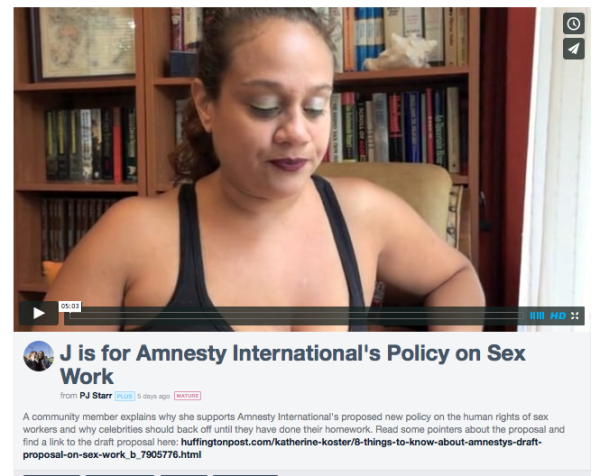An important part of the mission of the Best Practices Policy Project is to hold the United States accountable for sex worker rights. And in this debate, we note that many of the instigators of the hysterical backlash against the sober policy discussions at Amnesty International are based in the United States. These groups are primarily anti-sex work non-profit organizations that are heavily bank-rolled by anti-trafficking funding from American billionaires, who cynically tap into a desire to “save women and do good” amongst less informed but otherwise well-meaning people and organizations. Given the debate it is now the responsibility of those–such as celebrities Lena Dunham, Kevin Kline, Lisa Kudrow and Meryl Streep–who inadvertently allied themselves with what boils down to be nothing more than ongoing support for the policing and incarceration of people in the sex trade, their families, their customers and anyone the police may profile as a ‘client’ or sex worker such as transgender women, to look behind the rhetoric and distance themselves from this. It is especially important for celebrities and anti-violence groups alike to call for an end to the policing of sex workers and their communities at a time in the United States when all are aware of the role of police in the killing of people of color as part of “routine policing” and the deaths of numerous people–including many young women such as Sandra Bland and April Brogan–in custody.
Rather than arrest and incarceration, sex workers need rights including the right to work and provide for themselves and their families. “We have this narrative of ‘victim,’ ‘pimp,’ and ‘john,’ which I think are all really derogatory, racist, classist terms,” noted Savanah Sly a board member of SWOP-USA, “I stand firm that this is business. We call ourselves sex workers for a reason, and we want to be recognized as such. We need to be recognized as a labor force.” J, an advocate with New Jersey Red Umbrella Alliance who has experienced violence at the hands of the police and domestic violence, explains, “sex work enabled me to go to school, it enabled me to get my child out of an abusive situation, it got me out of a domestic violence situation.” J is adamant that those opposing Amnesty International’s policy should be awakened to the realities of the lives of sex workers and support what sex workers need. “Do we really have to weigh in on the moral values of that? Which is the bigger crime, an act of domestic violence or sex?” she said to address a NY-based domestic violence organization that is opposing Amnesty’s policy of decriminalization, “I was not going to tolerate being with a man who believed he could beat me whenever he wants. I would rather go out there and take care of my own.”


One Response to “Amnesty International: essential policy decision”